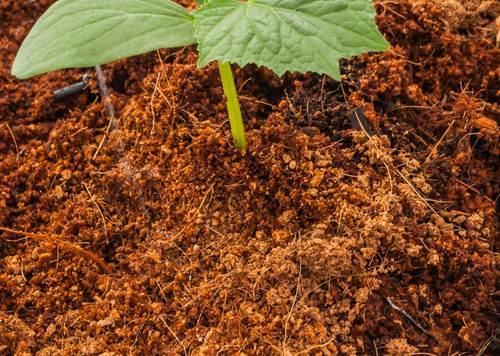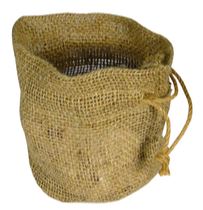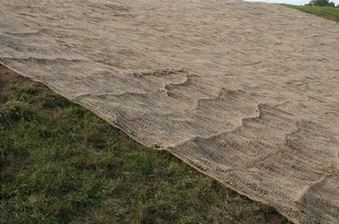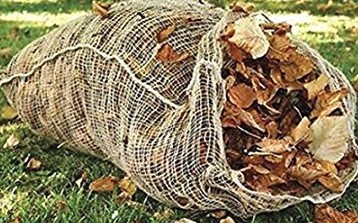Make your own compost
Composting, composting…. composting with jute bags is very easy and simple. Oh, how great it is to compost. Do not throw away the vegetable peels or the fruit skins into your trash bins. Or those used tea bags, coffee grounds or shredded papers. Get hold of a jute bag and you are all set to start composting!
Click on the link to know what are the things you can compost (https://www.planetnatural.com/composting-101/making/what-to-use/)
Start in the kitchen
You can compost all organic matter: from eggshells to banana peels. Did you know that a typical American wastes 474 pounds of food every year and sends to landfills? This is bad because organic waste composts anaerobically in landfills, meaning that methane and other greenhouse gases escape and contribute to climate warming. Instead, most of that food scraps can go to our gardens as free, organic fertilizer to grow our food, plants sustainably.
Soils love compost

The history of amending crops to grow better soil goes back to prehistoric days. Back in the days, our ancestors knew about the wonders of organic fertilizers. Even religious documents, such as the Bible, mentioned using dung, manure or compost and spreading it across fields! Yes, composting from food scraps is the key to creating lush-green, organic gardens.
Why compost?
Composting does more than just augmenting plant growth; it also helps enrich soil while suppressing plant diseases and pests. Imagine all the rich, organic matter breaking down in the soil and feeding the roots and plant parts! Ofcourse, composting also helps the environment by reducing the amount of trash that would be sent to landfills.
How to use jute in composting?
“But…” you might think, “What about all those pests that will come to get the composting matter?” I’m glad you thought of this. We can use a jute (burlap, hessian) sack, bag or sheet along with some dirt and mulch to cover the food scraps. Yes, you can simply use jute bags in lieu of non-biodegradable plastic.
Jute is also compostable by itself just like egg shells or the melon peels which means that you can sleep easy knowing that you are not contributing to the pollution or harmful clogging of our environment. Hence jute is highly recommended for composting purposes. It is incredibly easy and hassle-free to compost with jute bags while eliminating plastics.
Let’s see how.
Composting with Jute: Scenario 1:

You have a pot or several pots that you have to prepare for planting or seeding. Take all natural jute pouch that can fit into the pot – fill it with organic food scraps. Close the pouch with the drawstring. Take the pot, fill the bottom with mud, insert the pouch as-is into the pot, layer the top with some dried leaves, mulch and put a top layer of potting soil or mud. Sprinkle some water and put it out.
In about two weeks time (if the weather is warm) the pot is ready with rich, organic composted soil. Mix the soil well and transplant your seedling or plant. There is no mess, no waste and no need to purchase composted soil. You can use this method of using jute drawstrings for individual pots, for staged transplantings, different sizes of pots, balcony gardens, small yards or for general potted plants.
Composting with Jute: Scenario 2:

You dig up a pit in the garden/yard/farm. Fill in the pit with the food scraps, some dried leaves, a top layer of dirt or soil and lay the jute fabric over it. Sprinkle some water and depending on weather conditions, your all-organic, nutrient-rich composted soil can be used when ready. The jute fabric composts along with the organic food waste, all the rich nutrients enrich the soil while helping with plant growth and cost savings.
Composting with Jute: Scenario 3:

You have a plastic composting bin with a lid. You collect the food scraps daily in small jute pouches or smaller sacks and toss them into the bin. This method reduces use of plastic bags for daily collection of food scraps and for transfering into plastic composting bins. The jute also adds to the nutrient base in the bin as it is a biodegradable, vegetable fiber.
Composting with Jute: Scenario 4:

Instead of using plastic bags or trash bags, use light-weight all natural jute sacks that are sturdy and reusable (until they biodegrade) to store fallen leaves. Very portable, you can lift and carry the bags with much ease to collect, store, haul the leaves and then use them anytime for mulching or leaf composting.
Within jute sacks you can store a lot of leaves as the fibers of the bags can expand to accumulate the weight of the leaves. Why throw away those precious fallen autumn leaves? Get them into the jute sacks before the winds sweep them over or the gardener hauls them away!
It is right, it feels great, it is healing, it is therapeutic to compost with the all-earthy, all-natural, golden fibers of jute.
Conclusion:
It is easy to get started on composting whether at your home, office or farm and keep going year-round. Save costs, time and help the environment all at-once with natural composting while magically creating green spaces. Make your own organic, composted soil easily instead of rushing to the stores to buy it; use it in the pots, beds, gardens, farms or spread it over the fields all around the year. Within days, watch your land turn organically lush-green.
About Madi Solutions
At Madi Solutions based in Southern California (www.madidecor.com), we provide a vast range of composting products under our organic gardening and landscaping category – bins, trays, sacks, bags, cloth, fabric, rolls, bundles and sheets. Consult with our team on your composting requirements, projects or endeavors. Contact us to know more or send your inquiries by email to info@madidecor.com.
